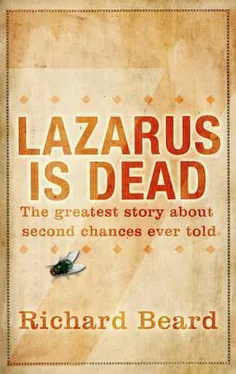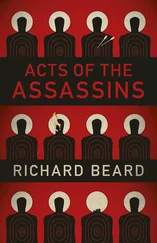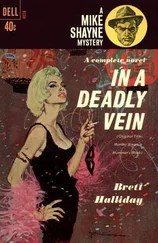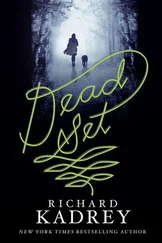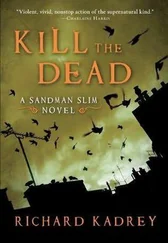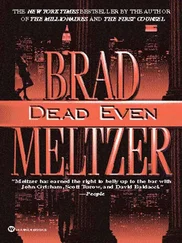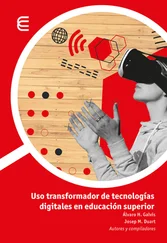‘Why have we lost sight of Jesus? What do your spies think they’re doing?’
The spies have been keeping Cassius informed about the movements of Lazarus. After his escape from the fortress Lazarus had been seen leaving Isaiah’s house, and then later he was spotted in the Lower City. The spies will not, however, lay a hand on him. They know where he’s been.
‘I can pick up Lazarus, but I need those legionnaires.’
‘Why didn’t you flog him? The soldiers stay here in barracks. Jesus is the one we want.’
Cassius goes to the marketplace below the west wall, where Yanav is continuing his brisk business in genuine Lazarus relics.
‘Where is he?’
‘Which one?’
‘Either. Both.’
‘Maybe in the same place,’ Yanav says. ‘Lazarus is searching, like everyone else.’
‘And where exactly is he looking? Take an educated guess.’
‘If I were him, I’d start where Jesus was last seen. Bethany. Anywhere else is speculation.‘
Cassius thinks: what would Lazarus do? He’d be smart, and travel at dusk, to attract the least attention. Cassius decides to get ahead of him. He crosses the Kidron stream, alone, and settles down behind a shrivelled fig tree. He is hidden from the road and he waits. Birds return to their nests, and night falls heavily on the last of the day, squeezing out a final grey layer of light.
Lazarus turns the corner. He walks briskly, like someone who knows he’s being watched.
Cassius follows him, up the gravelled tracks through the uneven groves of the Mount of Olives. Silver leaves twitch green and grey in the twilight. Lazarus can make this journey in his sleep, but as the night blackens, dark as the inside of a sack, Cassius becomes confused. He trips over a tree root and skins his hands. He scrambles upright, but the incline is against him and he bangs his knee. It feels as if the whole world is against him.
He can’t keep up, nor see where he’s going. He sits down, and breathes deeply, because regular breathing is good for logical thought.
‘Yaaaah!’
Shouting aloud also helps. He rubs the heels of his hands into his eyes, then pushes the skin of his forehead towards his hairline. He lets go and becomes himself again. Organise, he thinks. Fetch a horse, wait for some moonlight to ride by.
He turns back towards the city — saving people is harder than he’d expected, but he isn’t giving up. If Lazarus can be persuaded to cooperate, then nobody will have to die.
3
At first, Martha doesn’t recognise him. The last time she saw her brother he was tied to a rope being dragged away by Romans. She spent hours grieving him a second time, and then Jesus returned from Jerusalem. He calmed her, and almost convinced her that everything could turn out well.
His beard has grown. She mistakes him for Jesus, but then the moon comes out and there he is, Lazarus her brother, alive yet again.
Before his death, Martha hadn’t cried in thirty years. Now she cries every day. Tears come as she rushes towards him, as she pulls at him and holds him close. She slaps her wet cheek against his neck, his shoulder, then holds him at arm’s length to check his face.
‘What about the Romans? Where are they?’
‘Where they always are. What are you doing outside?’
The house, the Home of Lazarus Martha and Mary , is pale in the moonlight. Beside the bay tree in the courtyard a fire is snapping, and Martha had been sweeping embers back towards the flames. Lazarus wants a closer look, and with his first step he kicks a chip of crockery across the yard.
‘We’re burning everything,’ Martha says. ‘Every object you ever touched. The priests ruled the house was unclean, defiled by contact with the dead. One of the younger ones made me collect the kindling.’
‘I heard Jesus was here. After I was taken by the Romans.’
‘He said it didn’t matter, that we’d soon forget. They’re only possessions.’
Lazarus sees the remains of his razor near the base of the fire, the copper blade twisted and blackened.
‘The rugs,’ Martha says. ‘Gone. The blankets we carried from Galilee.’
Martha has saved what she can for everyday use. Otherwise their life is in ashes: clothes, bedding, the bolt of silk that Mary and Martha were keeping for weddings never destined to happen. ‘Jesus is probably right. You can’t take it with you.’
‘Is he here now?’
‘Not since yesterday.’
‘So you’ve had to do this on your own?’
‘Not quite,’ Martha says. ‘I’ve had help.’
‘Mary came back? I’m glad.’
‘Not Mary. Jesus sent someone from the city.’
A woman backs out of the house carrying a tray with an engraved brass teapot and matching goblets. She turns, and Lydia recognises him immediately, despite his beard, his fatigue, the darkness and his surprise at seeing her in the doorway.
‘Look who’s back from the dead.’ She smiles. ‘Not too bad, considering. I heard you had a green head.’
Cassius can predict the future. He decides what Rome needs and then makes it happen.
Lazarus will be the Roman client messiah. Not Jesus. Lazarus will neutralise the threat posed by Jesus, or any other impostor, and consolidate peace in the region for decades to come. Cassius has it all mapped out. Judaeans are infected with too much hope for god, and Lazarus can be the next affliction, a messiah who is not the king of the Jews and who doesn’t act provocatively during major religious festivals.
The Church of Lazarus Christ will not change the way things are, not too much. It favours law and order, naturally, and is tolerant of gods and religions from elsewhere. Lazarus himself will reward the ambitious and punish the lazy, but no one should give up everything they own to follow him. Stay at home. Respect property and stability, relax. The world is not approaching an end and these are not the last days before a decisive battle between light and darkness.
In fact, life tomorrow will be much the same as it is today. This is one of Rome’s most important unstated objectives. Tomorrow will be the same as today, if not slightly better.
Cassius reaches the Fortress to find that the Antonia horses have been transferred to the stables at the Praetorium. He curses and changes direction. The governor is wrong to be anxious: religion has to be managed, not repressed. It can distract the people from thoughts of rebellion, keep the children out of trouble and men in bed with their wives.
Lazarus will be the son of god, and Lazarus will belong to Rome.
They eat with Absalom’s family in Absalom’s house. Lazarus is impatient to get back to Jerusalem, to continue his search for Jesus.
‘What about the Romans?’ Martha asks.
‘They’re more likely to find me here than in the city.’
‘Sit down,’ Absalom says. ‘You don’t need to run. Jesus brought you back and he knows what he’s doing.’
Lazarus is also hungry, and this is the Passover meal of roasted lamb and matzoh to celebrate the deliverance from Egypt. He’ll eat quickly, he says, and then he’ll go. He sits cross-legged on the floor between Lydia and Martha, and eats as he has eaten every day this week: each meal could be his last.
Absalom is describing the Passover meals prepared by his mother, and Lazarus sees him for what he is, a kindly old man with expressive eyebrows who talks to the dead at night.
‘I asked her if she noticed your visit. She didn’t reply. Perhaps you saw her and she didn’t see you?’
‘Yes,’ Lazarus replies. ‘That must be it. Don’t worry. Your mother is there like everyone else. They are waiting for us.’
He had said the same to Baruch. What Baruch now does with that knowledge is up to him, but on balance as he eats Lazarus decides that life after death, specifically his own, has been revealed for the greater good. Absalom, for example, wants to hear that his mother exists. He can resist asking whether she has been judged, or if the afterlife is overcrowded or up or down or dark or light. His mother still is, which is all he needed to know.
Читать дальше
